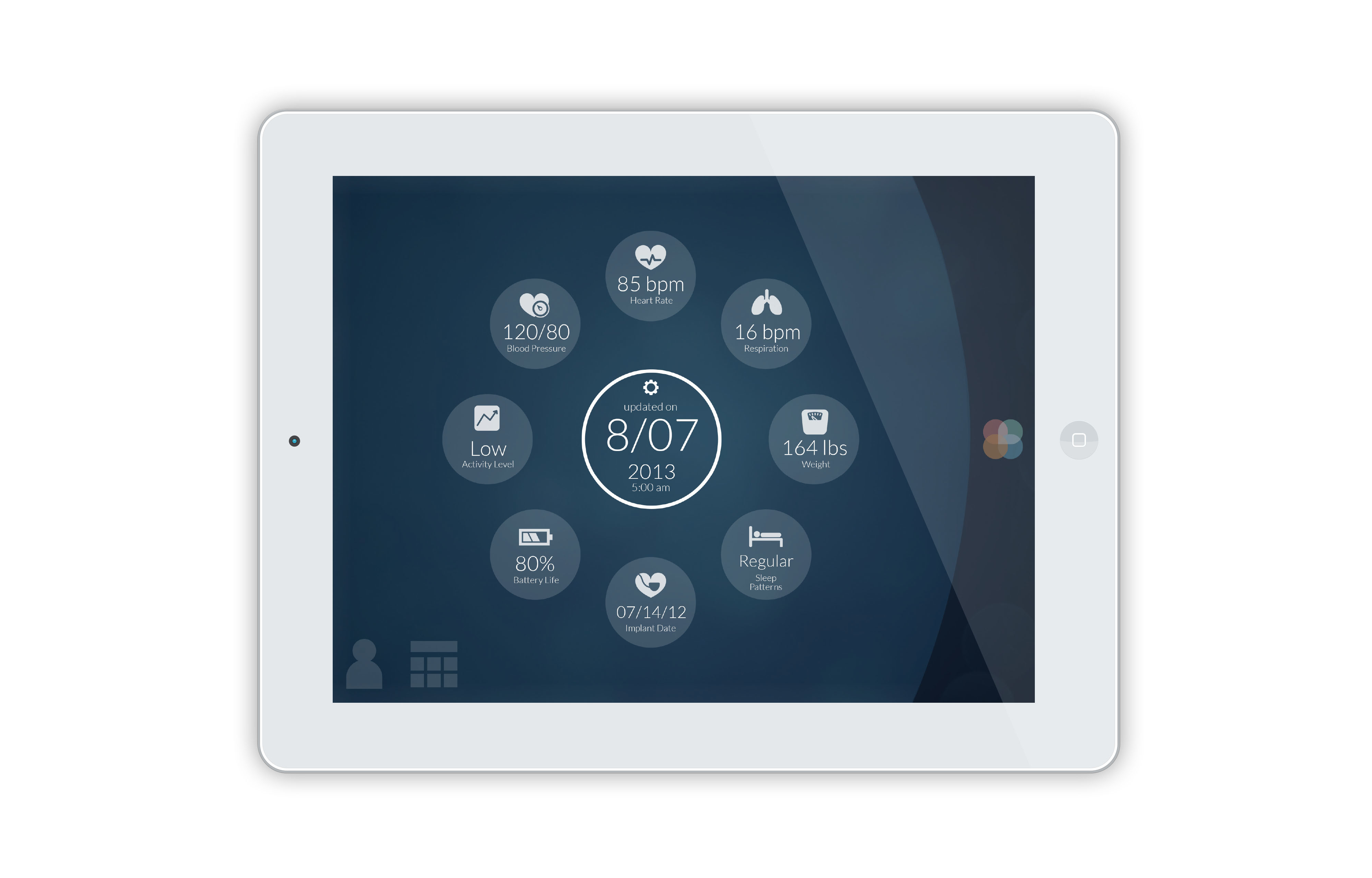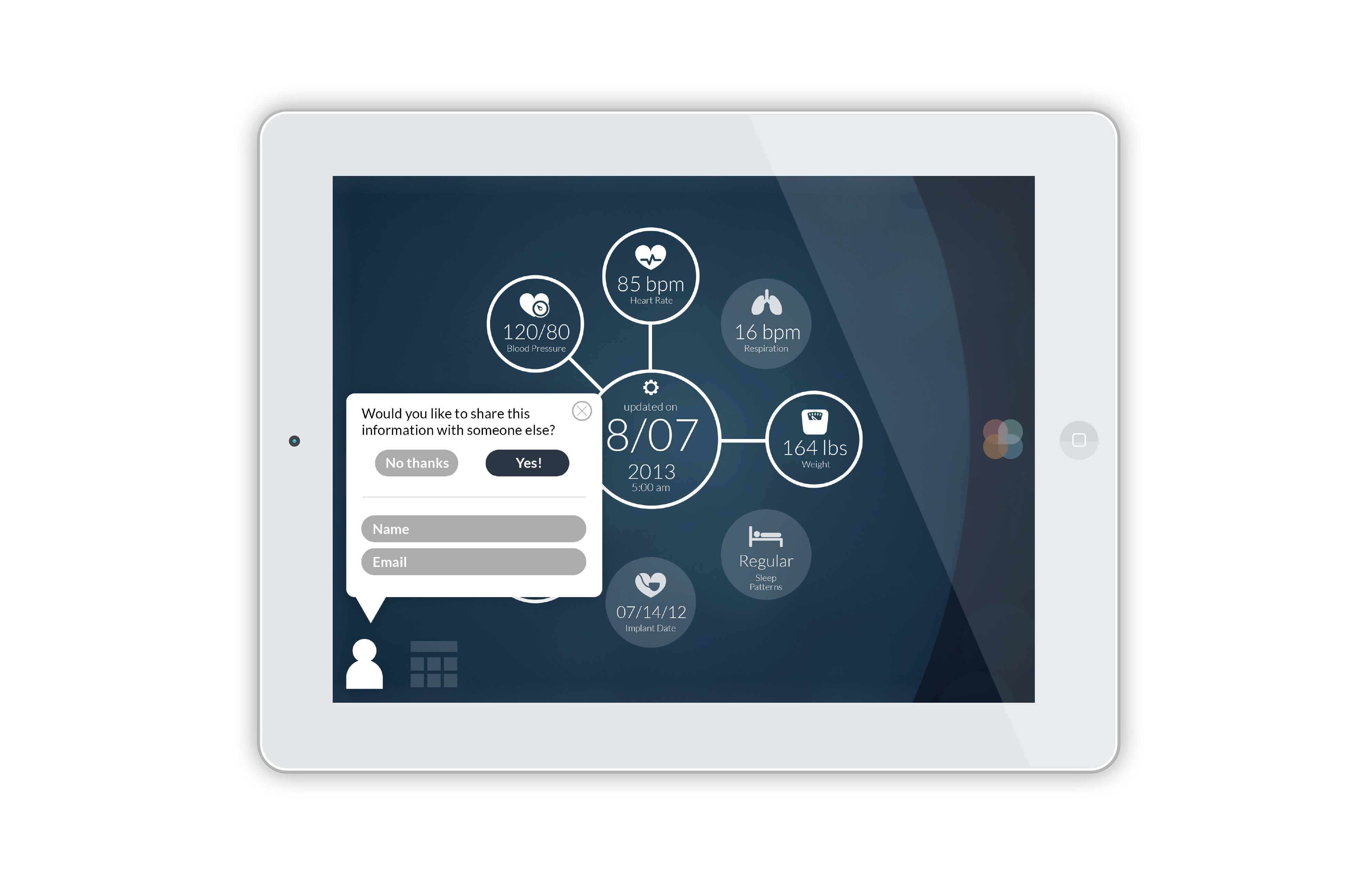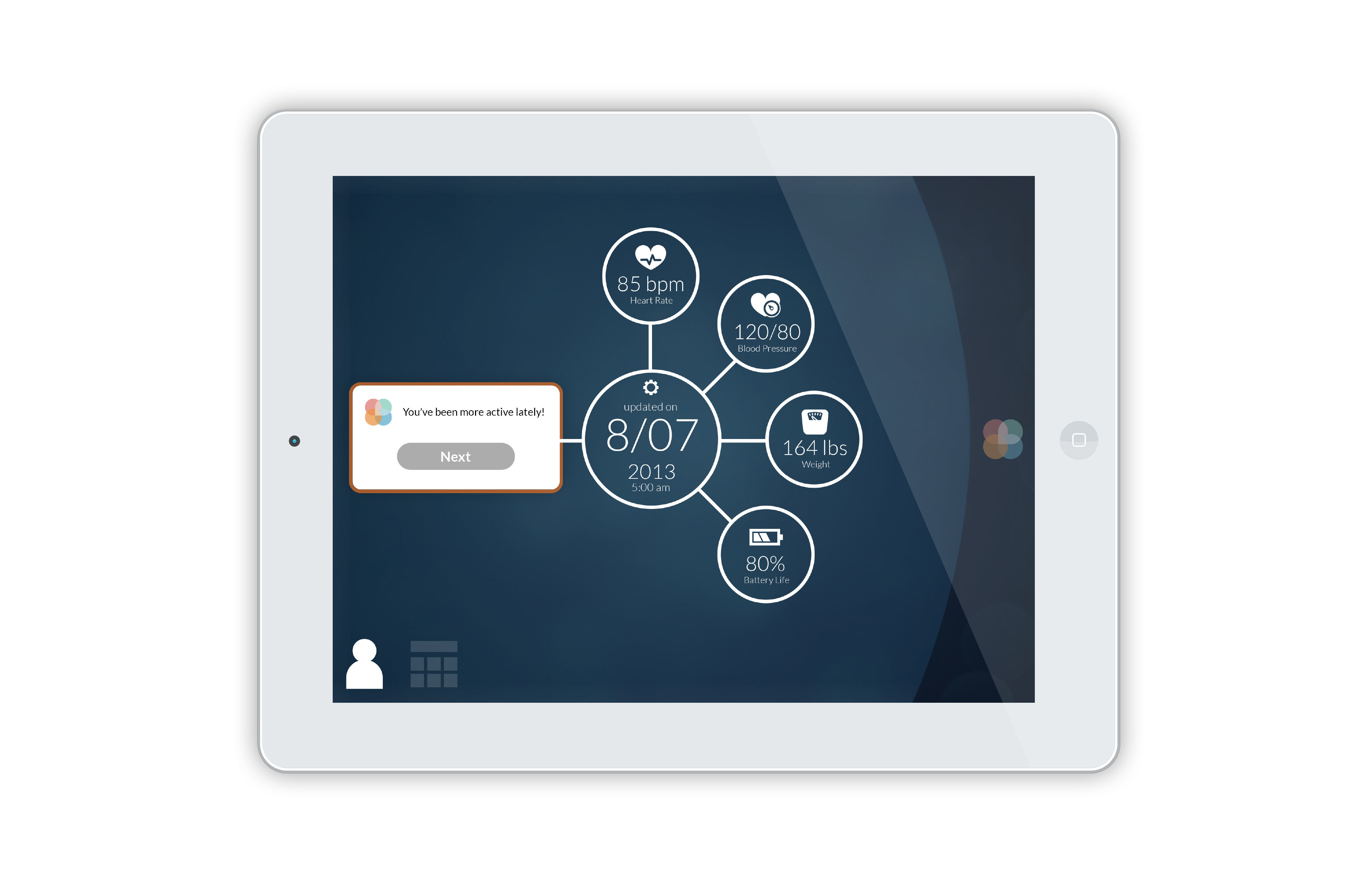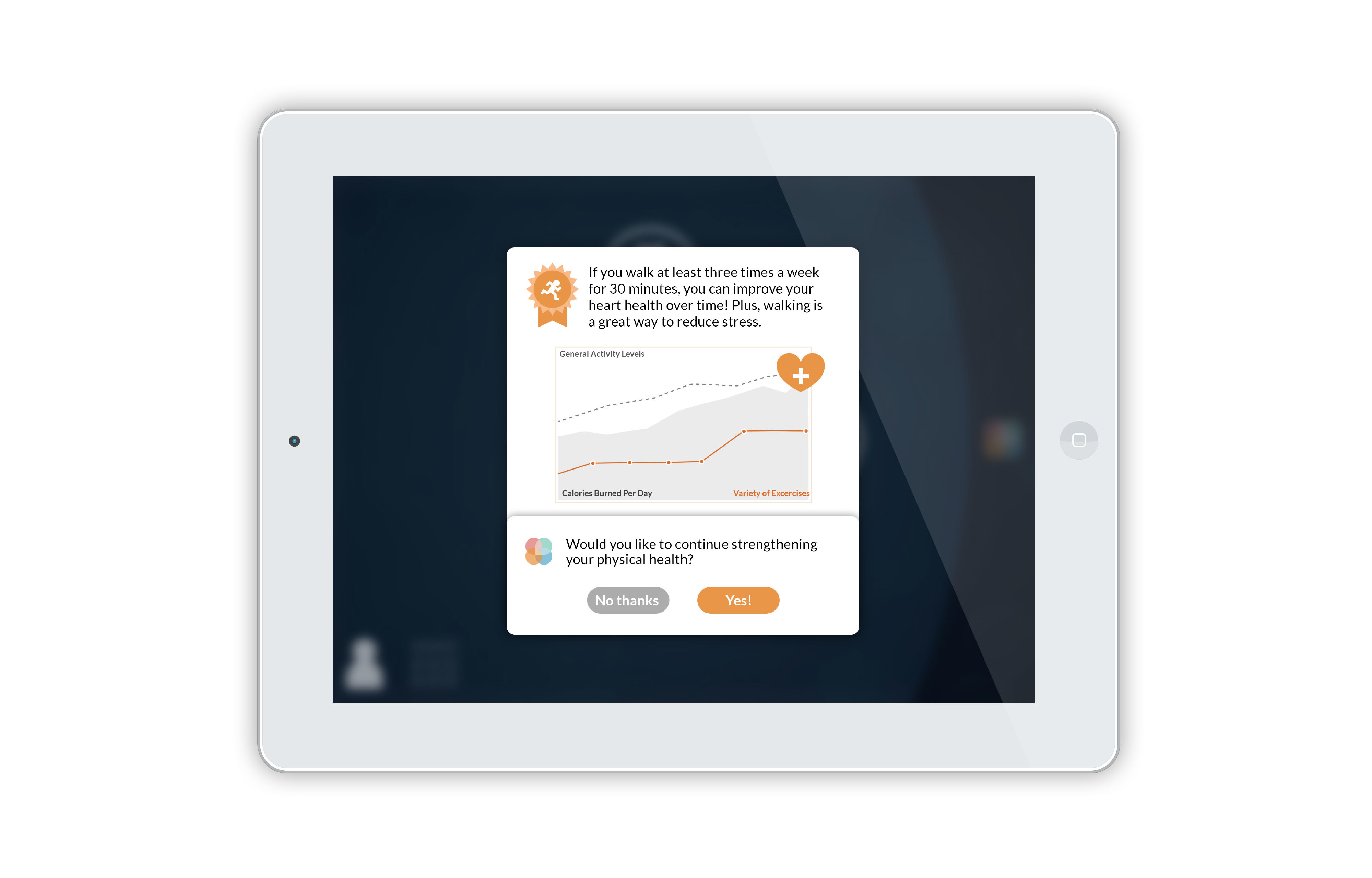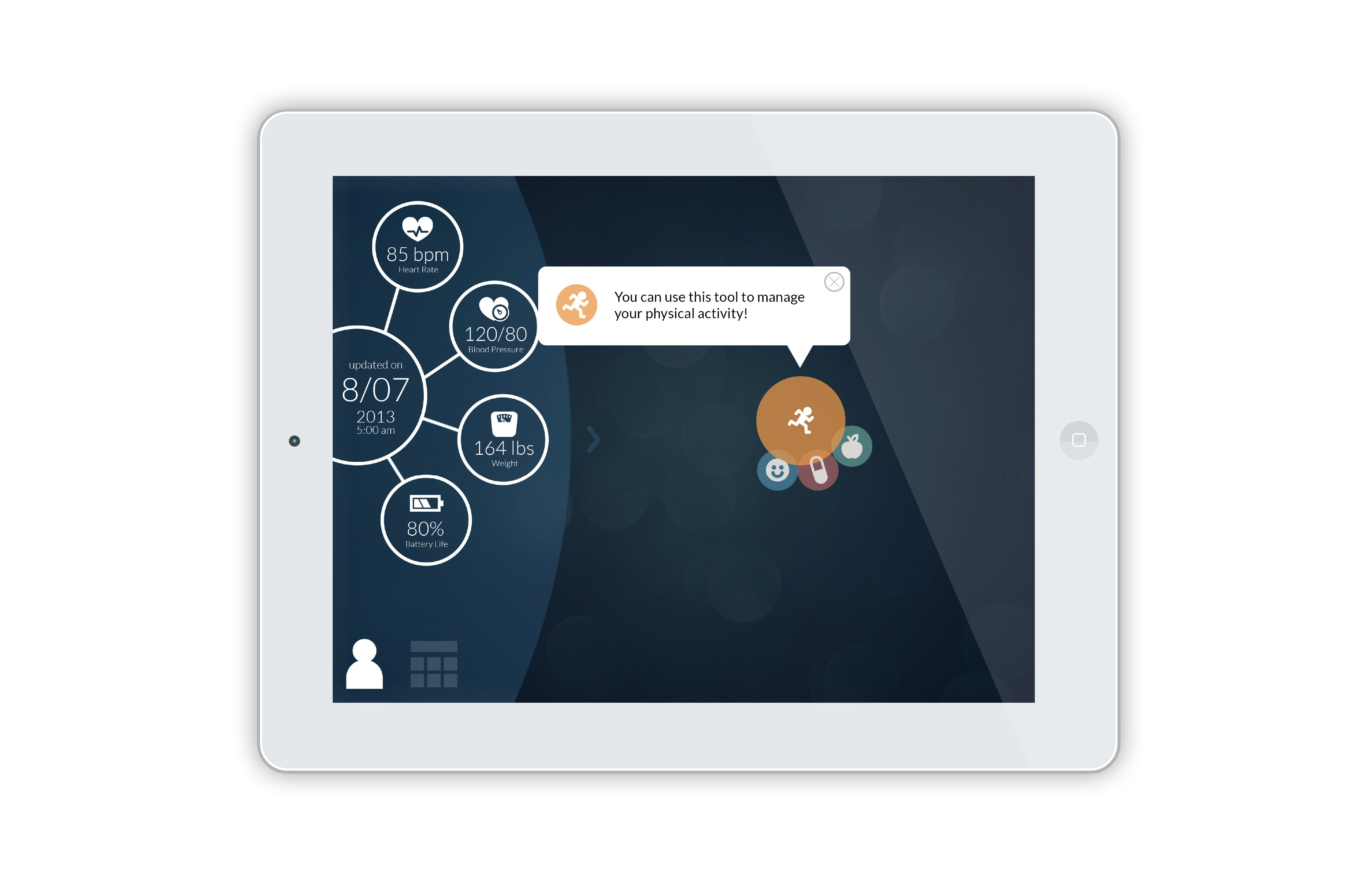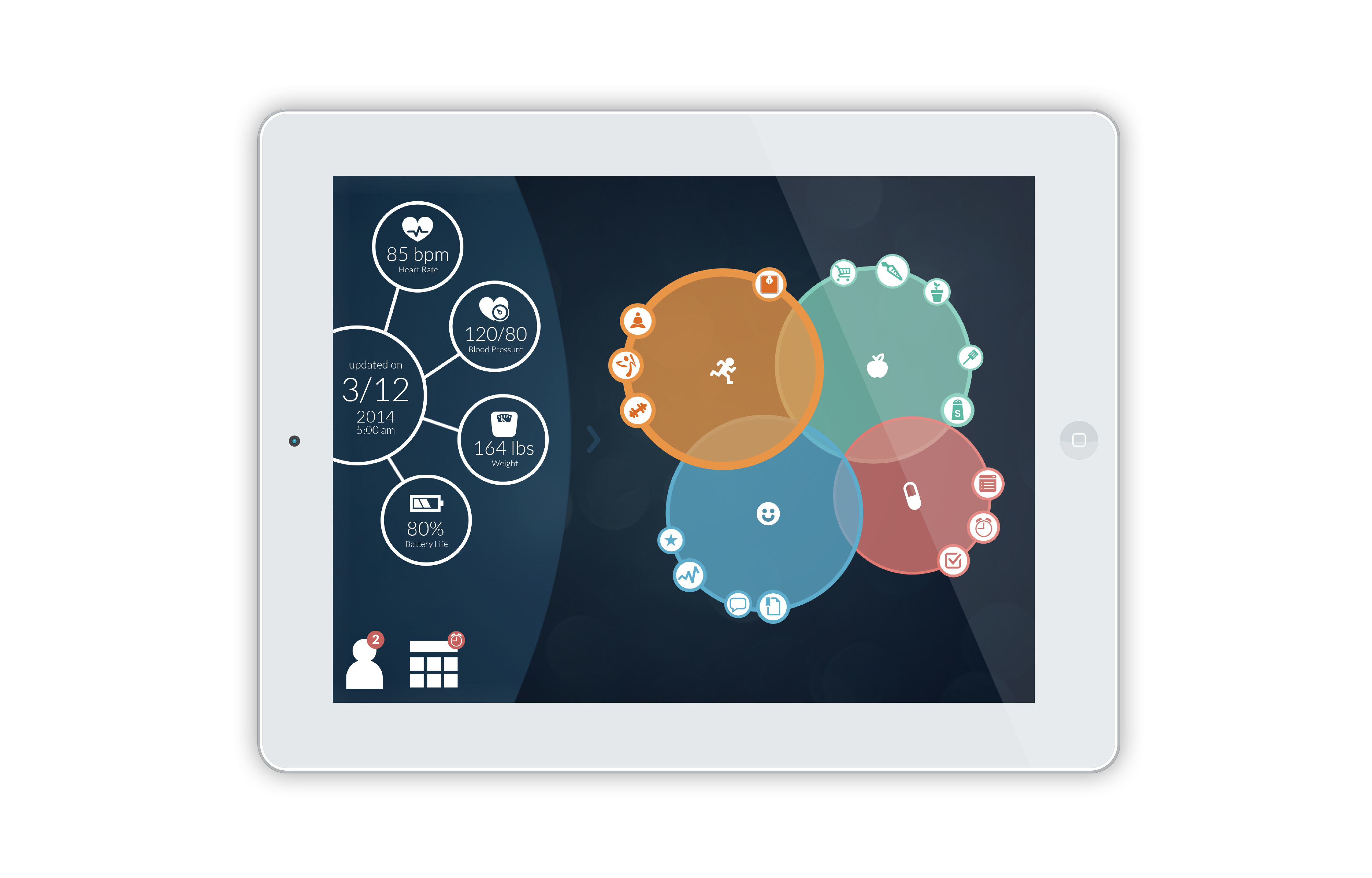We imagined the first app to give heart failure patients data from their ICDs to help them live longer and stay out of the hospital.
Implantable cardiac defibrillators (ICDs) are complex computers with embedded sensors that can track heart rate, respiration, blood pressure, and other vital statistics. Believing that sharing information with patients would give them insights and tools to manage their heart conditions, we partnered with Dr. Leslie Saxon, Chief of Cardiology at USC’s Keck School of Medicine, to design an app that leverages ICD data to help patients optimize their behavior in four areas affecting their heart health: medication compliance, diet, exercise, and emotional health.
To develop a “sticky” interface that motivates people to achieve the desired behavior change, we employed three strategies: progressive disclosure, coaching, and algorithms.
The Heart Coach initially engages users by giving them one-of-a-kind access to data about their ICDs. Over time, it begins to introduce new dimensions related to behavior. Once people make the commitment to behavior change, the app offers personal coaching to help users achieve their goals, and brings in support from a community of caregivers. Graphic trending charts help users envision their success and badges track their progress.
The app can triangulate multiple input points from embedded sensors to produce new insights about personal behavior and health. Karten Design helped make such insights actionable. For example, if a patient experiences a weight gain of more than two pounds over a 24-hour period, combined with decreased activity during the night (possibly indicating a missed dose of medication), it would trigger the app to ask a patient if they would like help managing medications.
We’re currently working with a major cardiac device manufacturer to bring this game-changing interface to market.
